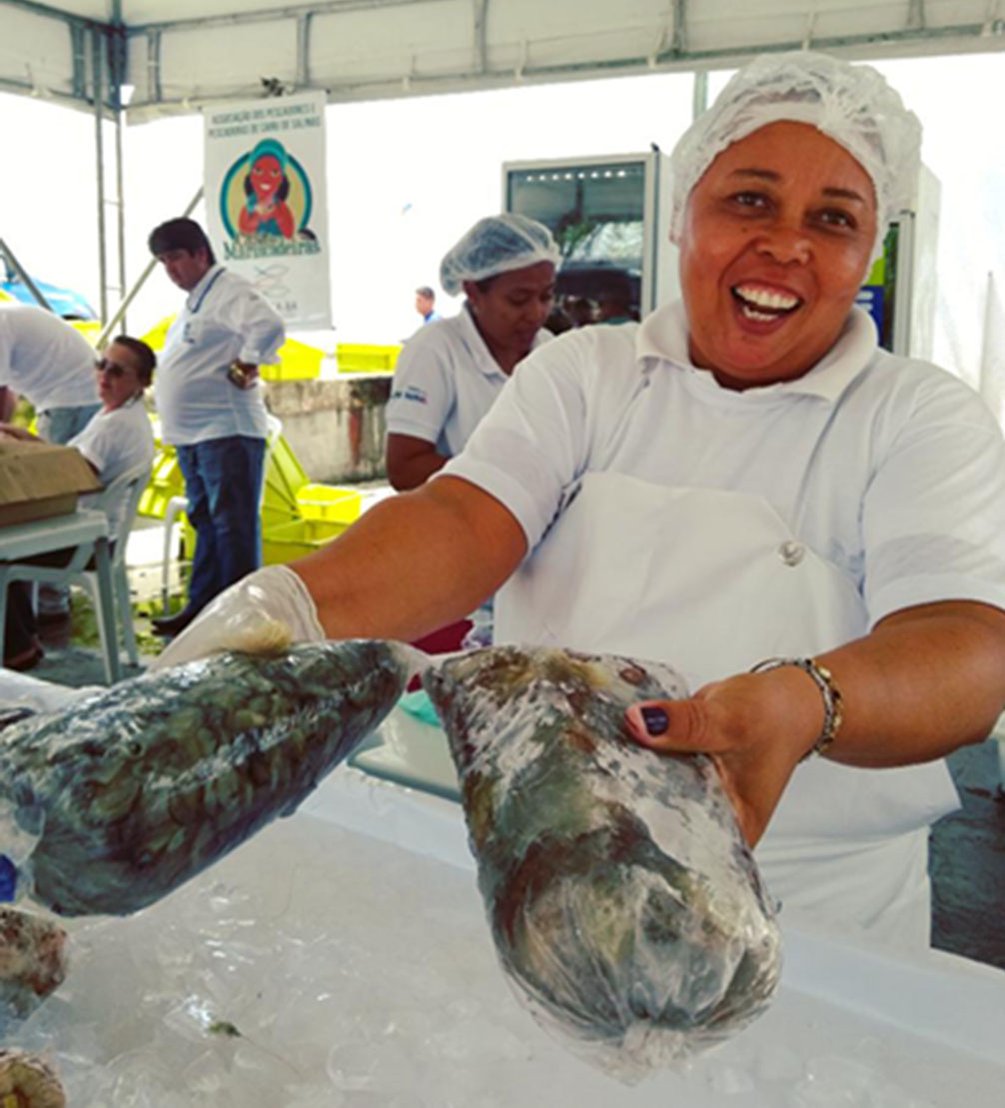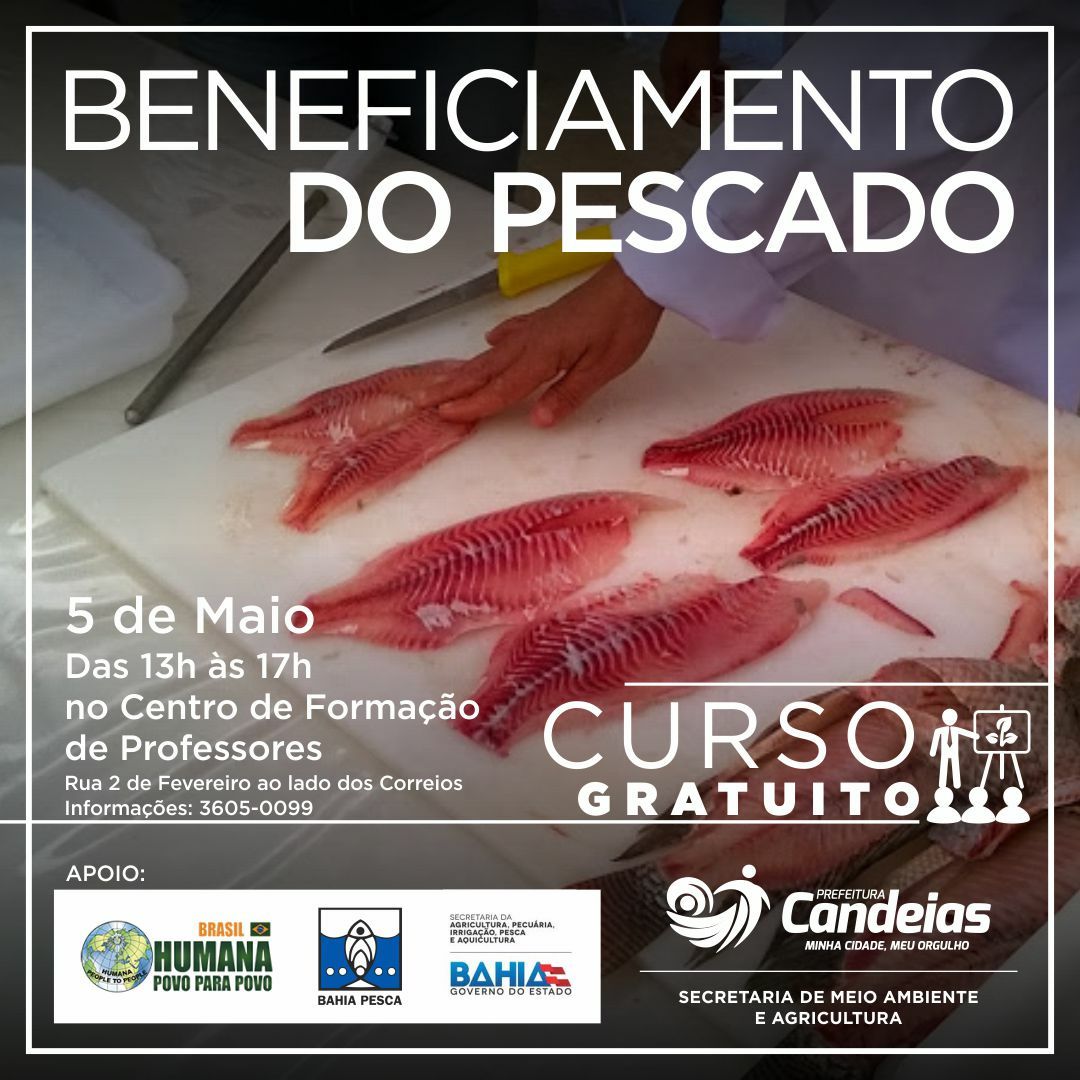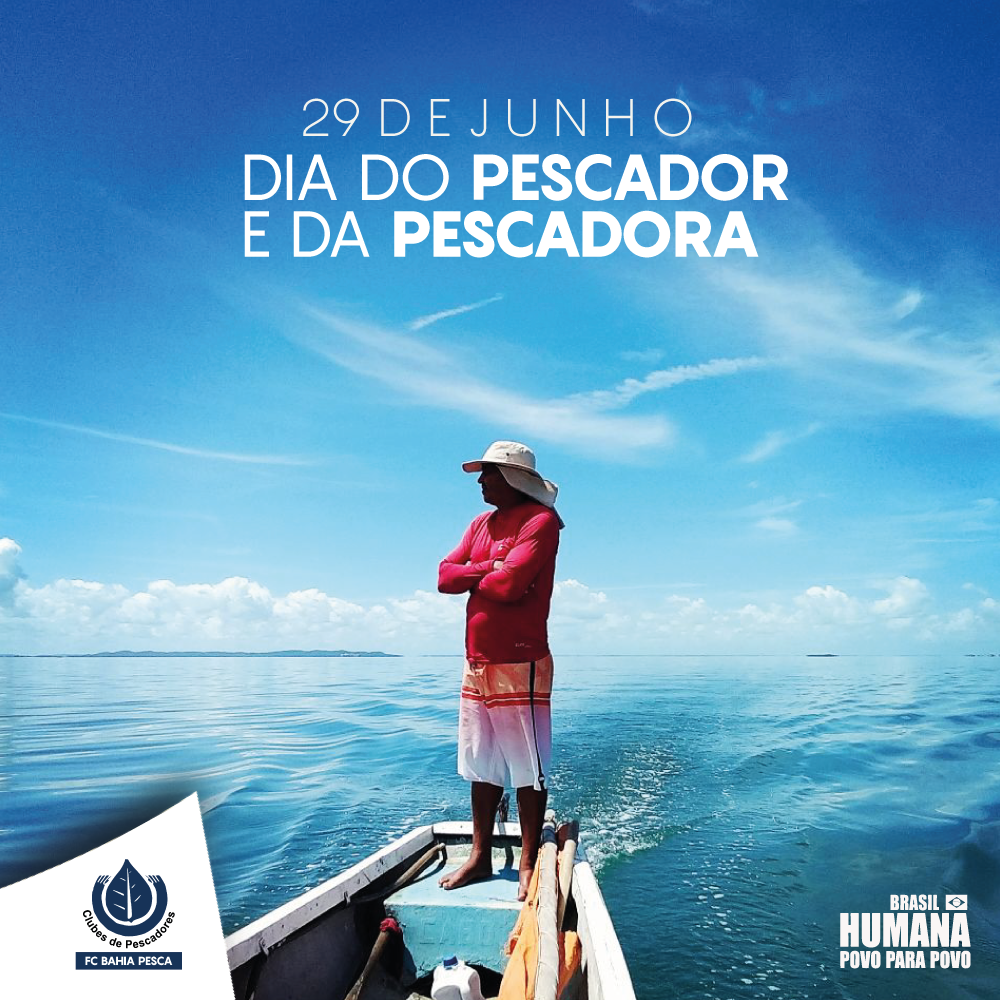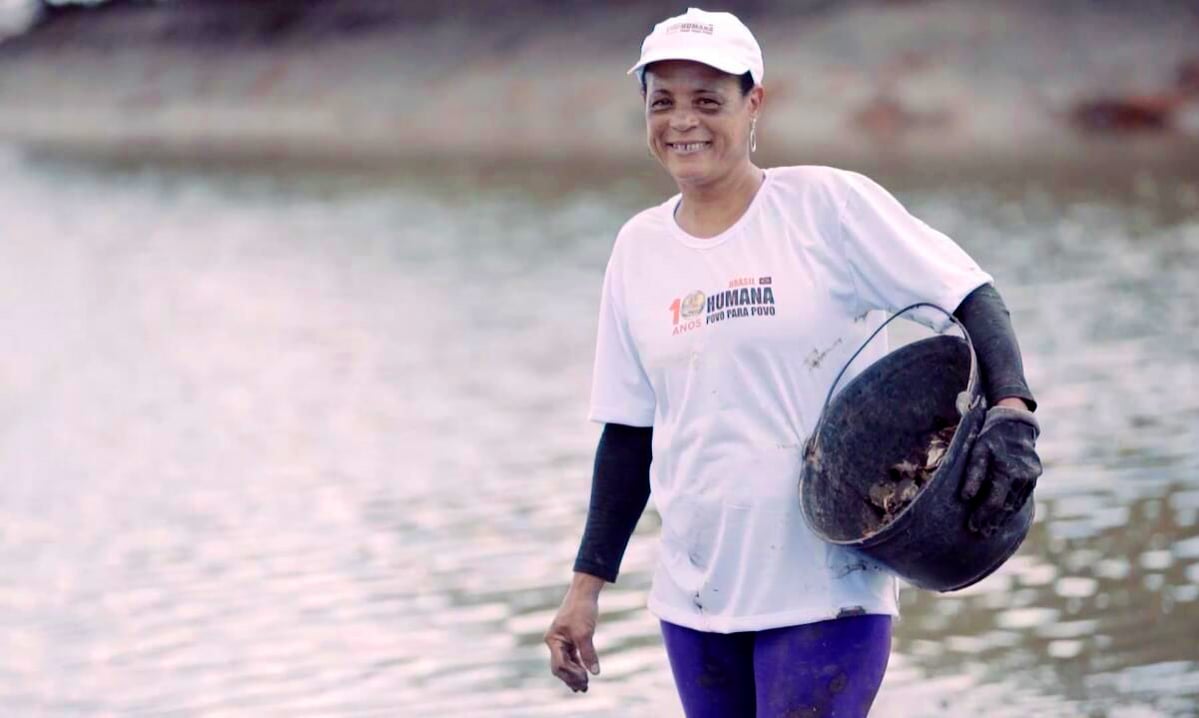Fishers' Clubs Formed in Brazil
Planet Aid has been supporting farmers in Brazil since 2014 through the Farmers' Clubs program. With our in-country implementation partner, Humana Povo Para Povo em Brasil (HPP-Brazil), we are helping with six Farmers' Clubs projects in northeastern Brazil.
In October of 2016, HPP-Brazil started a new kind of Farmers' Clubs project: one that is focused on people who fish for a living.
Clubes de Pescadores
The Fishers' Club Project (Clubes de Pescadores) works in 30 fishing communities in the greater metropolitan area of Salvador, Bahia, and reaches approximately 1,200 families engaged in fish or shellfish harvesting. Bahia Pesca, as the project is locally known, follows the structure of the basic Farmers' Clubs model, but adapts it for fishing communities.
Co-financed by the State of Bahia and other donors, Bahia Pesca has been organizing local residents into cooperative "clubs" in which the fishers receive training in sustainable fishing methods and value-added production, are encouraged to work together to solve problems, and receive access to needed equipment. They are also linked to local markets where their product can be sold.
In the Salvador area of the state of Bahia, many inhabitants rely on the ocean for food and income. But fishing families in Bahia are often only able to catch enough to feed their families, and they have thus struggled to rise from poverty. The Fishers' Clubs are helping these families collaborate and share resources, leveraging their power as a group through cooperative fishing and selling practices.
"We work towards the empowerment of men and women to become active agents to transform their lives," said José Carlos, the Coordinator of Fisheries and Aquaculture for the project.
Click on the video below to see the Fishers' Clubs in action.
Strengthening Market Access
One of the main challenges in the fishing communities is accessing markets and negotiating with buyers there. As a large group has more bargaining power than an individual seller, it is easier for the clubs to get their products to market and obtain better prices for the larger volume. This also leads to the ability to make long-term partnerships with local buyers.
Once such partnership is with REPESCAR, a cooperative that provides seafood to restaurants in Salvador. Along with benefitting the fishing communities, this is benefitting the local buyers as well. Maria de Fátima, the president of REPESCAR said, "We are working as a group… We begin to receive fish and seafood from other FC Fishing clubs so we can produce more and earn more."

Showing off the clubs' bags of shellfish for market.
Providing Technical Assistance
The project employs 13 fishing engineers and a veterinarian who help guide the project in a sustainable and environmentally friendly direction. Members learn new methods of agroecology and marine conservation. They also experiment with ways to improve production using low-cost materials, as well as budgeting techniques and results planning.
The fishing engineers work with the whole chain of production to ensure the proper industrialization of aquatic organisms, while the veterinarian performs a supervisory function, emphasizing the sanitation of the processed products. They accompany families of fishers throughout the process, guiding the adoption of more sustainable and profitable fishing techniques and the implementation of oyster and macro-algae cultivation.
The fishing engineers also live among the club members in their communities. This allows them to better understand the local reality and create a bond beyond the technical relationship. Through this close knowledge, the fishers, communities, and the engineers collectively identify problems and seek solutions together.

Bahia Pesca poster advertising a free fish processing class offered by the program.
Encouraging Activism
Along with organizing fishers into clubs to connect with other fishers and markets, the project encourages the fishers to become active community members, working on local councils and committees, taking initiative as local leaders, and engaging with municipal fishing organizations.
In this way, the fishers are able to challenge and change local bylaws to reflect their needs and make a larger impact in their communities. They seek to guarantee rights and encourage local governments to support actions aimed at sustainable development. Over 80 percent of the fishers in the Bahia Pesca project are affiliated with a local community-focused entity.
This doesn't stop with just the fishers enrolled in the project. The presence of Fishers' Clubs in Bahia have helped mobilize others, encouraging more than 3,500 local fishers to become involved in community organizations and committees that work to benefit fishing families.

A poster advertising the celebration of International Fishermen's Day on June 29.
Supporting Gender Equality
The project also focuses on giving women more opportunities for leadership and family leading. The fishing community in Bahia has a large number of women, and 72 percent of participants in Bahia Pesca are women, but not many hold leadership positions within the local organizations. Bahia Pesca is seeking to change this by encouraging women in the Fishers' Clubs to take on a leadership position.
The aim of the club is to strengthen the skills and potential of women as seafood producers, and to encourage proper management of their own resources by proposing alternative and complementary measures to fishing, organized into productive groups. Through the project, women increasingly participate in public decision-making spaces and local events, becoming examples of income generation and community leadership.

Stimulating Initiative
Project Leader Carlos acknowledges that a culture of dependence on social subsidies from the state can hinder initiative amongst fisher communities to improve their situation. There is also the fear of failure that affects many people living on the margin. They often want to avoid trying anything new that could risk their livelihoods.
HPP-Brazil's approach involves promoting collective entrepreneurship, which reduces the fear of the participants as they are all in it together and can help each other problem solve and achieve success. It is a way for families to have a more dynamic vision of their own community and each other.
Click on the video below to learn more about Bahia Pesca and the Farmers' Clubs in Brazil.
